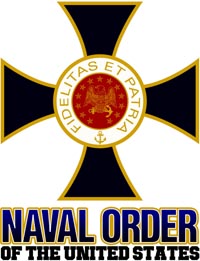News & Tall Tales. 1800s.

Chamber of Commerce
September 13, 1849, Alta California, San Francisco

NOTICE. We, the undersigned, citizens and merchants of San Francisco, being of opinion that the formation here of a Chamber of Commerce, similar to those existing in the great Atlantic cities, would greatly benefit the trade of this territory generally, and of San Francisco in particular, by enabling the commercial and trading interests to combine for the promotion of measures tending to such a result: and would further prove of great advantage by affording the community a tribunal of arbitration, in which disputes arising out of mercantile transactions, might be arranged on equitable bases, thus avoiding the expenses and delays of litigation, request all persons taking an interest in this matter, to meet us at the School House, San Francisco, on Thursday, the 23d at 8 o'clock, P.M., to discuss the question, and to elect the members of such a chamber, and board of arbitration, if it shall be considered expedient:
Mellus, Howard & Co.,
Sherman &, Ruckel,
E. Mickle & Co.,
Winter & Latimer,
Starkey, Janion & Co.,
Alfred Robinson,
Osborn & Brannan
Salmon & Ellis,
William H. Davis,
Ward &. Co.,
Cross, Hobson & Co.,
Robert Wells & Co.,
Finley, Johnson &. Co.,
Simmons, Hutchinson& Co,
Thomas B. Winston,
Ward, Mersch & Co.,
Cleemau & Neilson,
Benj. Reynolds,
Gillespie & Co.
San Francisco, 6th August, 1849 34tf
 All About America: Gold Rush and Riches
All About America: Gold Rush and Riches
Paul Robert Walker
Meticulously researched, with specially-commissioned illustrations and original artwork from each period, reading lists, resources for further study. An immersive introduction to the history that shaped America. In 1848, carpenter James Marshall made a chance discovery: a few shiny flakes-of gold in a riverbed he was digging. Within a year 800,000 gold-seekers from all over the world were on their way to California. The Gold Rush was on.
Freaks of Fortune: The Emerging World of Capitalism and Risk in America
Jonathan Levy
Until the early nineteenth century, "risk" was a specialized term: it was the commodity exchanged in a marine insurance contract. Here is a story of how the modern concept of risk emerged in the United States. Born on the high seas, risk migrated inland and became essential to the financial management of an inherently uncertain capitalist future. Focusing on the hopes and anxieties of ordinary people, Levy shows how risk developed through extraordinary growth of new financial institutions - insurance corporations, savings banks, mortgage-backed securities markets, commodities futures markets, securities markets - while posing moral questions. To be a free individual, whether an emancipated slave, a plains farmer, or a Wall Street financier, was to take, assume, and manage one's own personal risk. Yet this often meant offloading that same risk onto a series of new financial institutions. Levy traces the fate of personal freedom as it unfolded in the new economic reality created by the American financial system.
 Imperial San Francisco: Urban Power, Earthly Ruin
Imperial San Francisco: Urban Power, Earthly Ruin
(California Studies in Critical Human Geography)
Gray Brechin
First published in 1999, this history of San Francisco traces the exploitation of both local and distant regions by prominent families — the Hearsts, de Youngs, Spreckels, and others who gained power through mining, ranching, water and energy, transportation, real estate, weapons, and mass media. The story is one of greed and ambition on an epic scale, tracing the connections between environment, economy, and technology with links that led, ultimately, to the creation of the atomic bomb and the nuclear arms race.
 The Big Spenders:
The Epic Story of the Rich Rich, the Grandees of America and the Magnificoes, and How They Spent Their Fortunes
The Big Spenders:
The Epic Story of the Rich Rich, the Grandees of America and the Magnificoes, and How They Spent Their Fortunes
Lucius Beebe
The Big Spenders was Lucius Beebe's last and many think his best book. Here he describes the consumption of the Gilded Age. Beebe enjoys it all immensely, and so do his readers, whether it is James Gordon Bennett buying a Monte Carlo restaurant because he was refused a seat by the window, or Spencer Penrose leaving a bedside memo reminding himself not to spend more than $1 million the next day.
Millionaires and Kings of Enterprise
The Marvellous Careers of Some Americans Whose Pluck, Foresight, and Energy Have Made Themselves Masters in the Fields of Industry and Finance
James Burnley
 The Tycoons: How Andrew Carnegie, John D. Rockefeller, Jay Gould, and J. P. Morgan Invented the American Supereconomy
The Tycoons: How Andrew Carnegie, John D. Rockefeller, Jay Gould, and J. P. Morgan Invented the American Supereconomy
Charles R. Morris
The acclaimed author vividly brings the men and their times to life. The ruthlessly competitive Carnegie, the imperial Rockefeller, and the provocateur Gould were obsessed with progress, experiment, and speed. They were balanced by Morgan, the gentleman businessman, who fought for a global trust in American business. Through antagonism and their verve, they built an industrial behemoth — and a country of middle-class consumers. These four determined men wrenched the economy into the modern age, inventing a nation of full economic participation not imagined a few decades earlier.

The Naval Order of the United States has a history dating from 1890. Membership includes a wide range of individuals, many with highly distinguished career paths.
The San Francisco Commandery meets the first Monday of each month at the San Francisco Italian Athletic Club in San Francisco, California and holds two formal dinners each year.

 Copyright ~ 1998-2018.
Copyright ~ 1998-2018. 